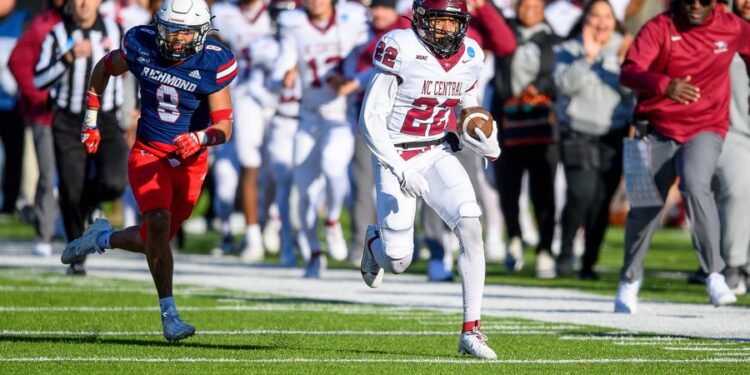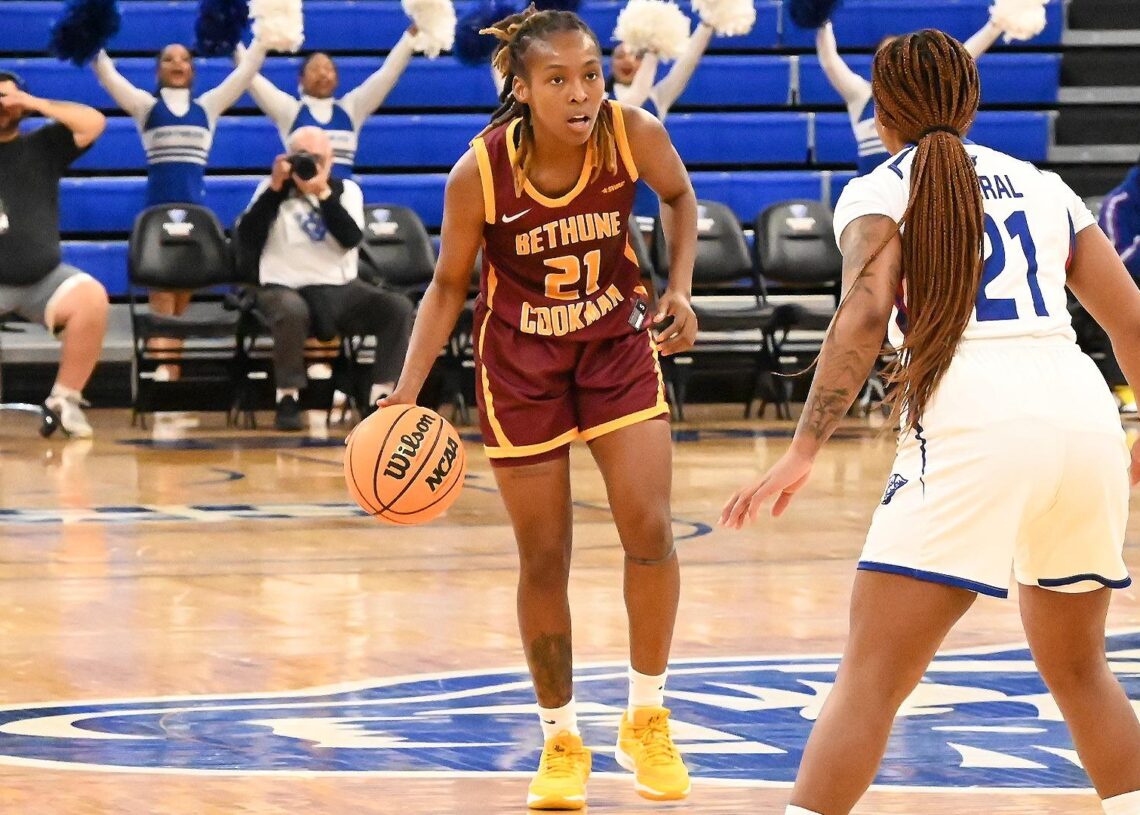Dr. Charles McClelland immediately apologized for his blurred background at Monday morning’s Southwestern Athletic Conference media call and with a good explanation.
McClelland, along with Central Intercollegiate Athletic Association commissioner Jacquie McWilliams, Mid-Eastern Athletic Conference commissioner Sonja Stills, and Southern Intercollegiate Athletic Conference commissioner Anthony Holloman, are in Washington, D.C. to meet with legislators regarding the Name, Image and Likeness (NIL) cases in federal court and any potential bills to be passed on the matter.
“We’re here to represent the best interests of our HBCUs and student-athletes,” McClelland said in his opening statement. “We will continue to work to ensure that once any federal legislature is passed, HBCUs remain in the forefront and are not left behind.”
McClelland was also clear that the four HBCU commissioners welcome the financial opportunities being presented to their student-athletes.
“We are for NIL, the student-athletes being able to capitalize on this athletics enterprise,” he said. “The issue we’re going to be facing is whether or not student-athletes will be deemed as employees. Within the SWAC, we are for the student-athletes getting what they deserve, but within limitations.”

He also admits that the HBCU conference branding and way of business are not equitable to that of Power Five and mid-major PWI conferences.
“We understand our model is not the same as the Power Fives, nor should it be,” he said. “If our student-athletes are considered employees, they would have to pay taxes on their scholarships.”
McClelland stated that more than 80 percent of students have some form of financial aid, noting that if they are branded as employees, it could do irreparable damage to Black college sports.
“When you’re talking about paying matching taxes, you’re talking about an additional supplement just to fund the programs,” he said. “[Student athletes as employees] would negatively impact our ability to fund and possibly force programs to be cut.”
Senate Commerce Committee Chair Maria Cantwell, D-Wash., said last month in an interview with USA Today the committee came close to agreement on a name, image, and likeness bill during the last Congressional session that included measures on athlete health, safety, and welfare.
But a potential deal fell apart when, according to Cantwell, “a lot of people wanted to jettison the HBCUs from Division I.”
“We didn’t think that was such a good idea,” Cantwell said. “And we weren’t for that for a bunch of different reasons. And so the negotiations fell apart over that issue.”
“The NIL bill we tried to put together fell apart because it included a requirement that Division I schools provide a baseline of health, safety, and scholarship protections for college athletes,” Tricia Enright, a spokeswoman for Cantwell’s office, said in an email to HBCU Sports. “Not all Division I schools could afford that, notably HBCUs, so we were working on a model to fund those protections for all schools by requiring the athletic association to provide financial assistance.”
Wright further explained that the “SEC balked at this approach” and would not support a bill that would provide financial assistance to all schools.
Leaders of the four major HBCU conferences have implored members of Congress to consider legislation that would address NIL that would have a “staggering impact” on their schools.
To that end, McClelland was realistic about the role sports play in promoting each institution.
“When athletics are cut, students leave, and when they leave, the funding leaves, and your institution is crippled,” he said. “Athletics are the window to advertise our schools, and without athletics, your enrollment dips.”
Conference commissioners sent a letter to the Congressional Black Caucus in September to investigate how NIL and athlete employment would affect Black colleges.
At the heart of the matter, the HBCU commissioners suggested that schools may be forced to discontinue teams or entire departments if athletes are ruled employees.
“To protect all that we have accomplished on our HBCU campuses, we ask for your support in passing laws that, when necessary, pre-empt state law to create clear and fair playing fields for HBCU student-athletes,” a portion of the letter stated. “Like the majority of our Division II and mid-major peers, most HBCUs do not generate significant revenue and rely heavily on school-appropriated funds and donations. Therefore, classifying student-athletes as employees would have a staggering impact on our athletic programs and schools.”







